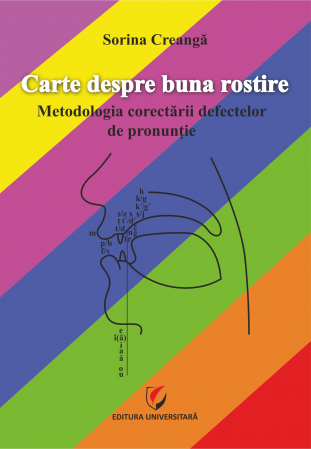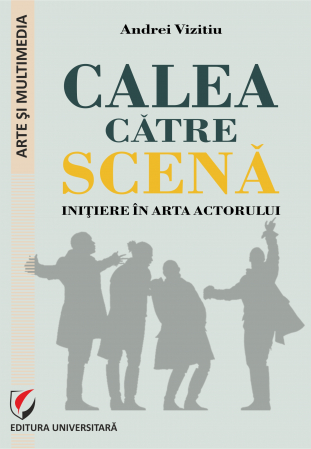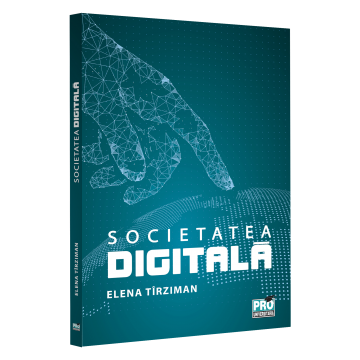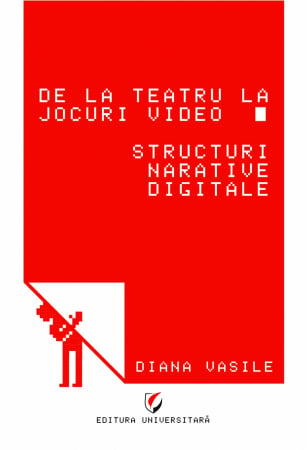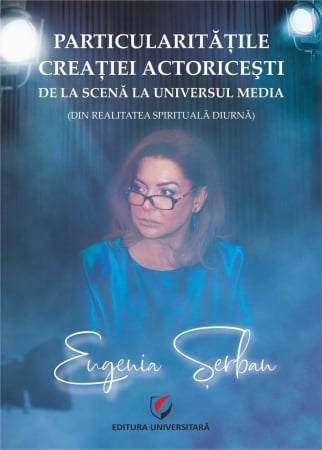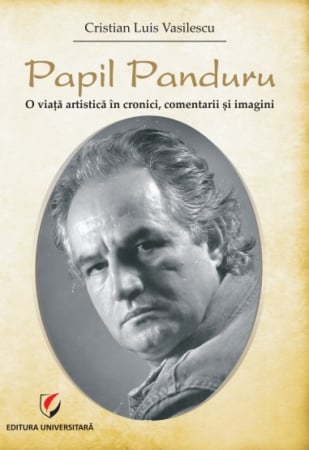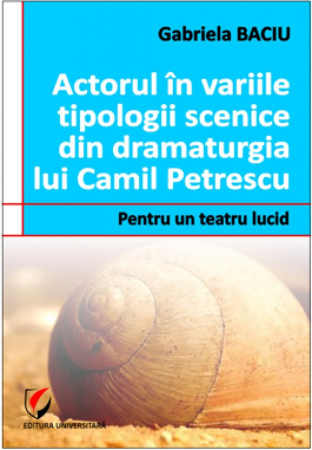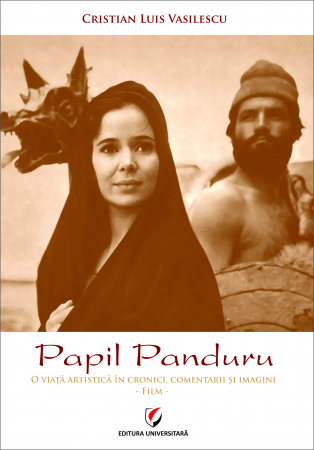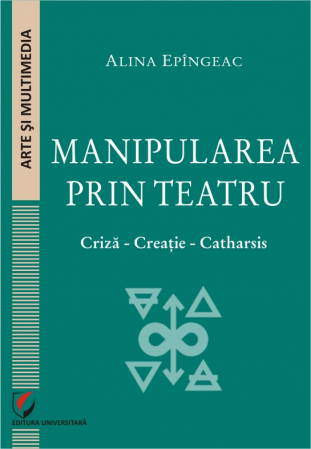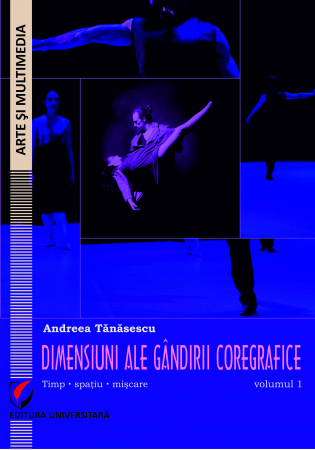6359.png) Overturning the Paradigm of Punishment. A Mmoving Image of the Representation of Violence in the Show and the Media
Overturning the Paradigm of Punishment. A Mmoving Image of the Representation of Violence in the Show and the Media
ISBN: 978-606-28-0950-8
DOI: 10.5682/9786062809508
Publisher year: 2019
Edition: I
Pages: 320
Publisher: Editura Universitara
Author: Alexandru I. Berceanu
- Description
- Download (1)
- More details
- Authors
- Content
- Where to find it
- Reviews (0)
Overturning the paradigm of punishment - a moving image of the representation of violence in the show and the media by Alexandru Berceanu is the result of a complex work, which intertwined both theoretical accumulation and experimental dimension, evolving during the project in areas and methodologies never used so far in Romania. The theoretical area of the paper, which covers more than two thirds, is layered on several levels of interest; socio-anthropological, ethological, psychological and neurological, keeping its paradigmatic substantiation regarding the functions, procedures and effects of the theater in relation to the violent act, suggested, narrated or represented. I must mention, from the very beginning, that the research design of this large project is impressive, original and ambitious, and the experimental area, without proposing definitive results, opens new horizons for multi and interdisciplinary research on theater, both from a methodological point of view, and in relation to the use of theater as a foundation for knowledge, psychism, physiology and human behaviors.
Overturning the paradigm of punishment - a moving image of the representation of violence in the show and the media by Alexandru Berceanu is the result of a complex work, which intertwined both theoretical accumulation and experimental dimension, evolving during the project in areas and methodologies never used so far in Romania. The theoretical area of the paper, which covers more than two thirds, is layered on several levels of interest; socio-anthropological, ethological, psychological and neurological, keeping its paradigmatic substantiation regarding the functions, procedures and effects of the theater in relation to the violent act, suggested, narrated or represented. I must mention, from the very beginning, that the research design of this large project is impressive, original and ambitious, and the experimental area, without proposing definitive results, opens new horizons for multi and interdisciplinary research on theater, both from a methodological point of view, and in relation to the use of theater as a foundation for knowledge, psychism, physiology and human behaviors.
(…)
Overturning the paradigm of punishment - a moving image of the representation of violence in the show and the media represents, from my point of view, the completion of an extremely vast and courageous analytical and synthetic research project, with a unique character, from Romania - one, unfortunately, traditionally refractory when it comes to leaving the comfort zone of historical and essayistic, self-sufficient approaches. This book will certainly open new horizons and will be a major incentive for a new generation of thinkers eager to take theater and theatrical action out of our usual boundaries of reflection, those of pure and simple aesthetics.
Miruna Runcan
-
RASTURNAND PARADIGMA PEDEPSEI. O imagine in miscare a reprezentarii violentei in spectacol si media
Download
It's been almost forty years since I started working in prisons or the "belly of the beast," as Jack Abbott calls it. At first, I worked as a theater director and later as a certified playwright.
Prisons tell stories, violent stories. I have certainly heard and worked with the stories of violence, with men and women who have raped and who have suffered violence. As a member of a Romanian association, I saw the same stories of violence played in Romania prison after prison. As a theater director and teacher I have seen the same violent stories in the United States, Great Britain, Australia, Bulgaria, New Zealand, the Netherlands. Hence my confidence in writing this Word forward for this important thesis on violence in theater and the media.
As I was reading Alexander's book, I remembered Peter Brook's show The Ik, based on Colin Turnbull's book The Mountain People. Displaced from their ancestral homes by the Ugandan government, these people with rich spirituality descended into vicious alienation when they were moved to a desolate wasteland.
Brook's theatrical performance was an astonishing and painful reminder of Arendt's idea of the banality of evil.
Alexandru's thesis passes us with great elegance through the ideology of violence and suggests the role that theater and media must play. Again I remember (this happens to the elderly) a book called Jonas Barish's Anti-Theater Injury in which he chronicles 2500 years of insults, insults and lies that have been told about theater and its ability to simulate truth with effects. so strong.
Here Alexander makes such a great contribution to the canon of theater and violence - through his neuropsychological experiments. As a playwright, I welcome this initiative - finally someone who is progressing from the Likert scale to concrete evidence - and whose work will undoubtedly have a huge impact on the future of drama therapy and probably on the many art therapies that have been based. too much time on inaccurate measures from simple interest!
The Holocaust and Poraimos, the genocide in Cambodia, the massacres in Rwanda are still a strong and frightening reminder to some of us about violence. David Yanagizawa-Drott gathered very clear evidence that, for example, radio propaganda at the time was at the center of some ferocity that took place during the massacre of the Tutsi community by the Hutu community. Alexander clearly investigates the critical relationship theater-violence-brain-body-media.
This is the way to go for art therapies!
John Bergman
Profesor asociat, Hollins University
Drama terapeut atestat
Regizor Geese Theatre Company USA for Corrections.
Overturning the paradigm of punishment - a moving image of the representation of violence in the show and the media by Alexandru Berceanu is the result of a complex work, which intertwined both theoretical accumulation and experimental dimension, evolving during the project in areas and methodologies never used so far in Romania. The theoretical area of the paper, which covers more than two thirds, is layered on several levels of interest; socio-anthropological, ethological, psychological and neurological, keeping its paradigmatic substantiation regarding the functions, procedures and effects of the theater in relation to the violent act, suggested, narrated or represented. I must mention, from the very beginning, that the research design of this large project is impressive, original and ambitious, and the experimental area, without proposing definitive results, opens new horizons for multi and interdisciplinary research on theater, both from a methodological point of view, and in relation to the use of theater as a foundation for knowledge, psychism, physiology and human behaviors.
Overturning the paradigm of punishment - a moving image of the representation of violence in the show and the media by Alexandru Berceanu is the result of a complex work, which intertwined both theoretical accumulation and experimental dimension, evolving during the project in areas and methodologies never used so far in Romania. The theoretical area of the paper, which covers more than two thirds, is layered on several levels of interest; socio-anthropological, ethological, psychological and neurological, keeping its paradigmatic substantiation regarding the functions, procedures and effects of the theater in relation to the violent act, suggested, narrated or represented. I must mention, from the very beginning, that the research design of this large project is impressive, original and ambitious, and the experimental area, without proposing definitive results, opens new horizons for multi and interdisciplinary research on theater, both from a methodological point of view, and in relation to the use of theater as a foundation for knowledge, psychism, physiology and human behaviors.
(…)
Overturning the paradigm of punishment - a moving image of the representation of violence in the show and the media represents, from my point of view, the completion of an extremely vast and courageous analytical and synthetic research project, with a unique character, from Romania - one, unfortunately, traditionally refractory when it comes to leaving the comfort zone of historical and essayistic, self-sufficient approaches. This book will certainly open new horizons and will be a major incentive for a new generation of thinkers eager to take theater and theatrical action out of our usual boundaries of reflection, those of pure and simple aesthetics.
Miruna Runcan
He has staged over 25 shows in independent and state theaters, awarded national and international awards.
Starting from the interest for the new dramaturgy and the extension of the performative expression areas through digital augmentation, he participated in interdisciplinary projects such as the Subversive and Submersive Installation 1958-1958, the graphic novel Mickey on the Danube, VR Bucharest 41 Tour or REACH projects and interdisciplinary research projects theater - psychology - neuroscience.
Among his most recent shows: Schrodinger's Cat, A Lesson in Good Manners, Harun and the Sea of Stories, Bucharest 41-Tour-Return - a fictional-documentary journey around the Bucharest Program. His artistic practice and research are focused on topics such as violence, discrimination and the consequences of politics on a personal level.
Preamble by John Bergman / 5
Foreword Miruna Runcan / 7
It all starts in childhood / 13
1. Theoretical aspects of the violence-aggression binomial / 26
1.1 Short definition of terms / 26
1.2 The impact of violence on contemporary society / 31
1.3 The European sociocultural relationship with violence in the modern era / 41
1.3.1 Michel Foucault: Dramaturgy of Punishment / 46
1.3.2 Judith Butler: The Right to Suffering / 58
1.3.3 Giorgio Agamben: Body recognition and the right to life / 64
1.4 Ethology perspective on aggression / 69
1.5 Psychology's perspective on aggression and violence / 84
1.6 The neuroscience perspective on aggression and violence / 109
2. Overturning the paradigm of punishment / 152
2.1 The dialogue between the punitive legal scenario and the dramatic one / 152
2.1.1 From the purity of the representation of violence in the ancient Greek theater to the Roman excess / 157
2.1.2 Shakespeare and empathy in the dramaturgy of punishment / 167
2.1.3 Ibsen, or from inheriting dirty blood, to things worth fighting for / 175
2.1.4 Chekhov and the collective spraying of punishment / 177
2.2 Systemic directorial approaches and scenic representation of violence / 182
2.3 Representation of violence in contemporary drama, case studies / 197
2.4 Elements of the representation of the violent action in the contemporary Romanian direction / 212
2.5 The limits of public representation of violence, from performance art to video games / 218
2.6 Functionality of the aggressive act and its representation in art. Trauma and self-therapy / 225
3. Theatrical practice and interdisciplinary research / 34
3.1 Interface / 235
3.2 Bucharest 41 Return Tour / 240
4. Dramaturgy of violent social action: The transfer of fiction-reality / 267
Closing / 282
Bibliography / 290
Primary bibliography / 290
Web resources / 303
Secondary bibliography / 307
Spectacology and fiction / 313
Cinematographic and media references / 316
Contents / 317
List of figures / 319
Customer Support Monday - Friday, between 8.00 - 16.00
0745 200 718 0745 200 357 comenzi@editurauniversitara.ro
![Overturning the Paradigm of Punishment. A Mmoving Image of the Representation of Violence in the Show and the Media [1] Overturning the Paradigm of Punishment. A Mmoving Image of the Representation of Violence in the Show and the Media [1]](https://gomagcdn.ro/domains/editurauniversitara.ro/files/product/large/rasturnand-paradigma-pedepsei-o-imagine-in-miscare-a-reprezentarii-violentei-in-spectacol-si-media-128-731965.jpg)
